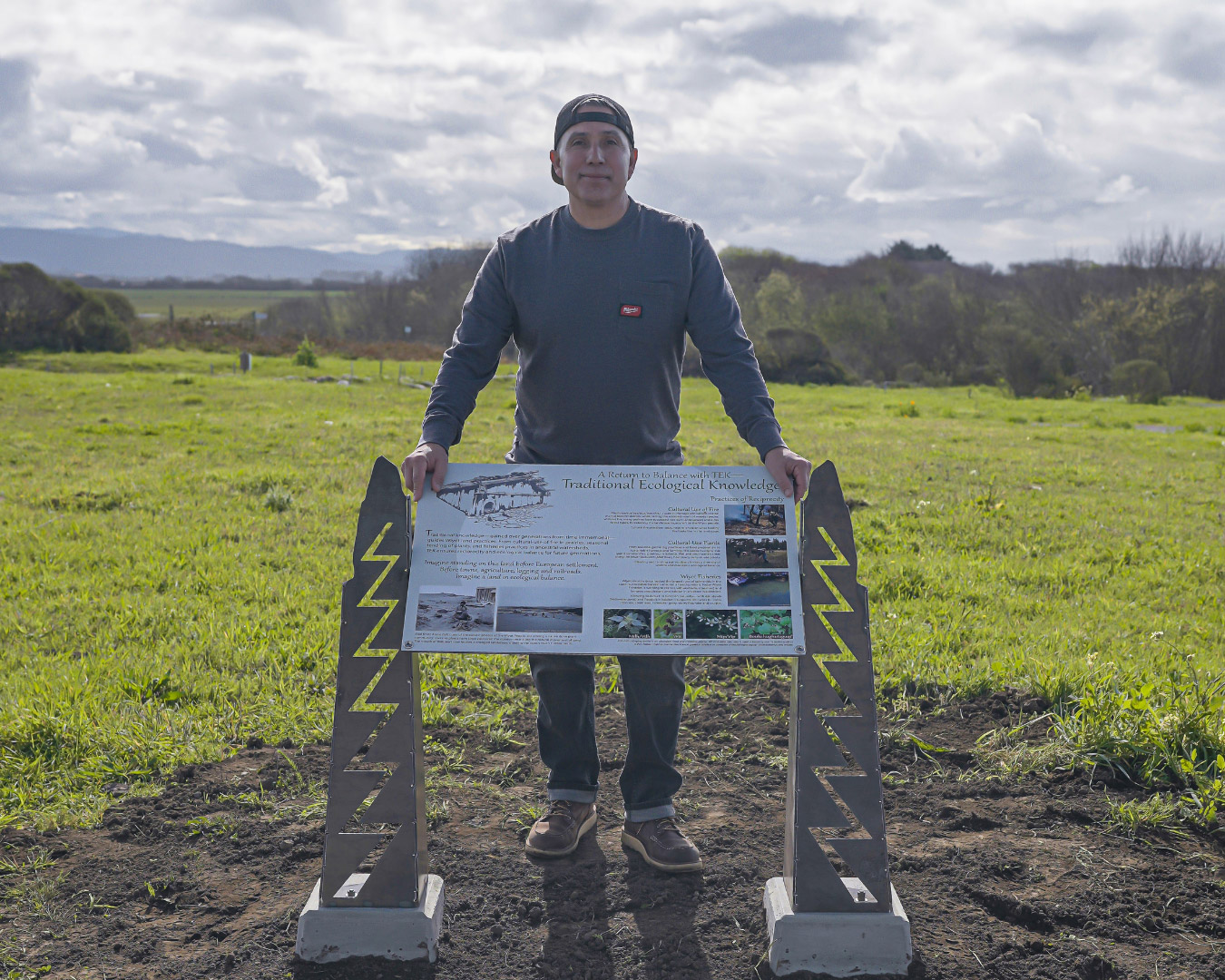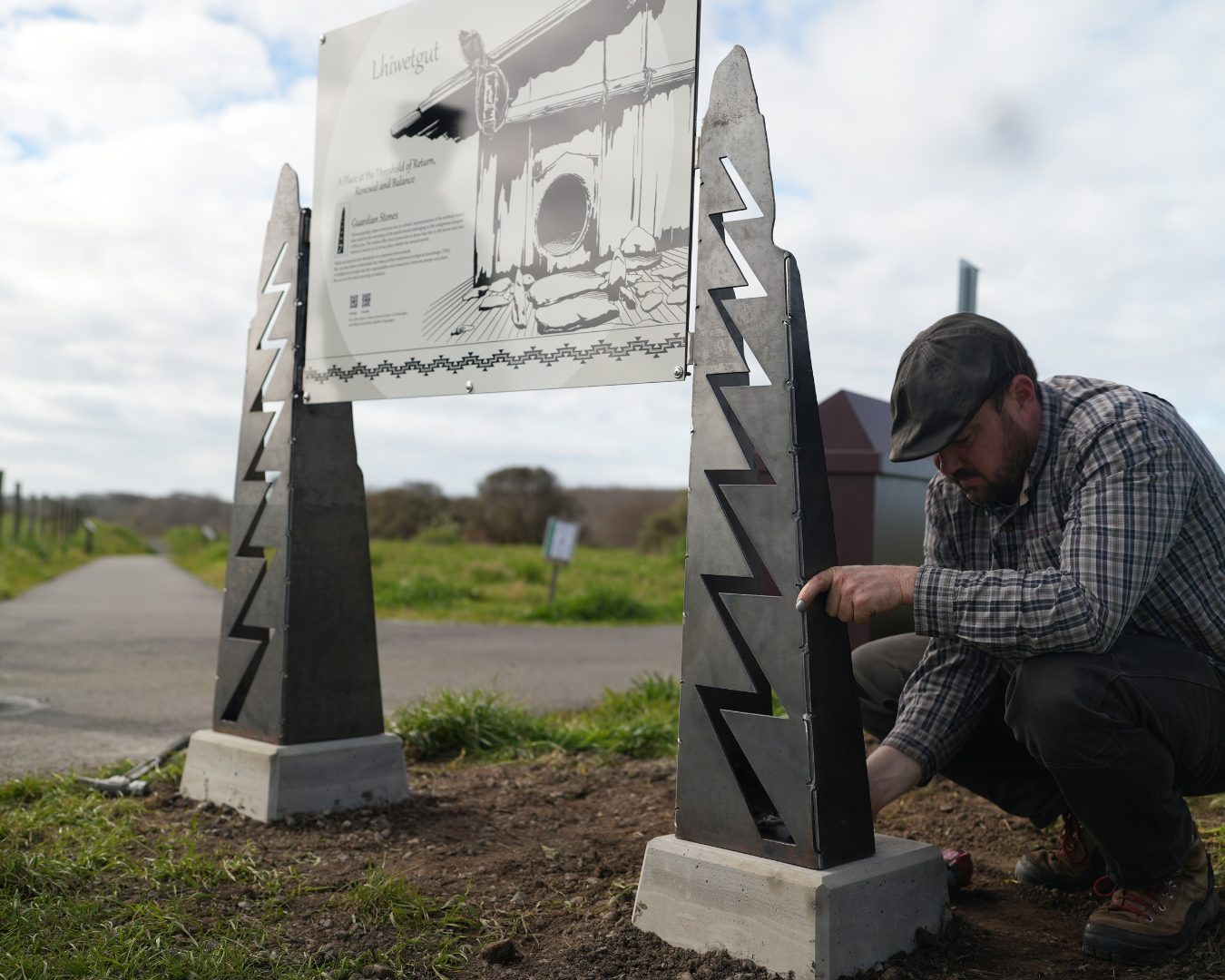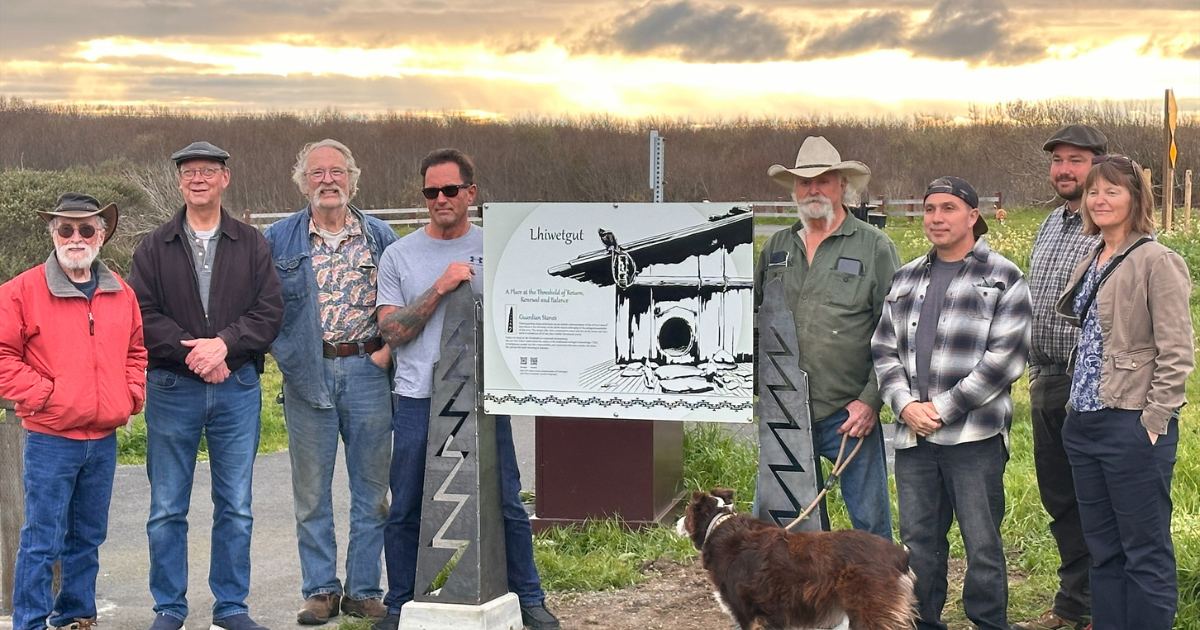Indigenous-themed Interpretive Signage Installed at Baduwa’t Estuary Restoration Project
FOR IMMEDIATE RELEASE
February 16, 2024
Contact:
Mary Burke - mburke@caltrout.org - 707.599.1212
Local artist’s design creates a powerful place-based experience for visitors at recently installed public access and restoration project site.
McKinleyville, CA – CalTrout, McKinleyville Community Services District, the Wiyot Tribe, Redwood Community Action Agency, and local artists collaborated to design and install interpretive signage at the site of a recently completed restoration and public access project at Baduwa’t estuary. Baduwa’t is now known as the Mad River but is not a direct translation.
The signage was installed on Monday, February 12, 2024 at the western end of School Road in McKinleyville. The new installation includes three interpretive signs with artwork by Alme Allen and Jullia Finkelstein. Over the past eight years, the sign’s narrative was cultivated with the Wiyot Tribe, CalTrout’s project manager Mary Burke, and Denise Newman with RCAA – whose designs artfully thread interpretive themes together. These signs welcome and orient visitors to the site and are held proudly between original pedestals designed by Alme Allen and fabricated by Nick Kieselhorst of Ironside Metal in Arcata to create a powerful sense of place.
Alme Allen, a local artist, carver and cultural teacher, designed the pedestals, and his art and storytelling are woven through the signs. “As a Karuk/Yurok person, I am pleased to bring my artistic interpretation to this project. Based on cultural values, the guardian monument structures deliver an old meaning to a new generation - a meaning that links people with place and the responsibility to care for the environment,” he said, speaking of the project significance to him.
The entry sign hosts a welcome message that greets visitors and closer to the bluff, two additional signs provide thought provoking messages about traditional ecological knowledge and practices and the processes of renewal and balance.

The site is now named Lhiwetgut, a Soulatluk word for this place chosen by the Wiyot Tribe. Lhiwetgut is part of the Wiyot Tribe’s aboriginal territory and is now a habitat restored for the community to enjoy, learn about the land, and connect with the natural world. There is a QR code on the sign to help people learn how to pronounce Lhiwetgut.
Marnie Atkins, past Cultural Director for Wiyot Tribe, added, “Sharing the story of this place, its ecological significance, and our joint work towards restoration makes it a special location that will be enjoyed for generations to come.”
The restoration and public access project was completed by CalTrout and partners in November 2022 and has quickly become a destination for the community to gather and connect with the natural world. Lhiwetgut includes a short ADA-accessible loop with two coastal overlooks, multiple benches, and a picnic table. Three ADA parking spaces can accommodate visitors who arrive by vehicle because the site is easy to access by walking and biking. Local residents from as far as Little Pond can easily reach the site through the trail system of the School Road Trail and the regional Hammond Trail – a part of the California Coastal Trail. Patrick Kaspari, General Manager of the McKinleyville Community Services District who owns and maintains the trail, said, “The McKinleyville CSD appreciates this opportunity to work with the Tribe and CalTrout to facilitate people’s connection to this special place.”
“Community building projects like this one, mark a new connection to the landscape and to each other. People return to this place again and again to walk the path and stand on the edge of the bluff for the chance to see the birds, deer, or maybe even harbor seals as they chase migrating salmon who are returning home.” said Mary Burke, CalTrout’s North Coast Regional Manager.
The project was funded by grants from California State Coastal Conservancy, the California Wildlife Conservation Board, NOAA, the US Fish and Wildlife Service, and community funding through CA Alternatives to Toxics and a supplemental environmental program through the Water Boards. Additional funding for signage was provided by the California State Coastal Conservancy.

Cover Photo: Joey Blaine





